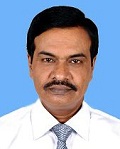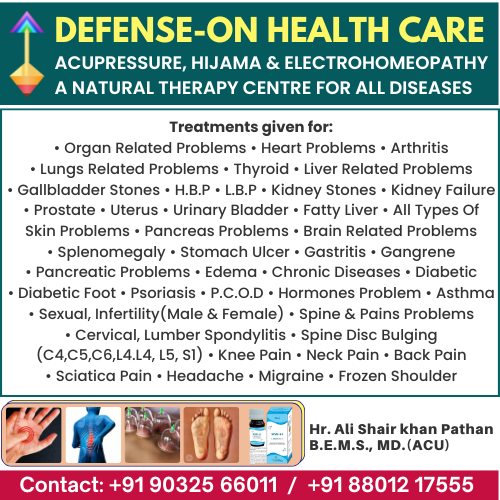wellnessexclusive.com
Your Free Guide to Good Health!

Alternative Therapies
- Alternative Medicine
- Access Bars
- Access Consciousness
- Acupressure
- Acupuncture
- Angel Healing
- Ayurveda
- Bach Flower Remedies
- Breathwork
- Cosmetic Acupuncture
- Crystal Healing
- Cupping Therapy
- Emotional Freedom Technique (EFT)
- Energy Healing
- Energy Medicine
- Ergonomics
- Family Constellation
- Face Reading
- Fengshui
- Geopathic Stress
- Graphology
- Holistic Solutions
- Holy Fire Reiki
- Homeopathy
- Ho'oponopono
- Humkara with Haleem
- Hypnotherapy
- Inner Child Therapy
- Jikiden Reiki
- Kwan Yin
- Lama Fera
- Law of Attraction
- Lecher Antenna
- Manual Therapy
- Meditation
- Melchizedek Method
- Merlin Trinity Healing
- Motivational Counseling
- Mudra Healing
- Munay - Ki Rites
- Naturopathy
- Neuro Linguistic Programming (NLP)
- Panchakarma (Ayurveda)
- Panchkarma Holistic Healing - Mind Control
- Past Life Regression
- Pendulum Dowsing
- Physiotherapy
- Pranic Healing
- Pythagorean Numerology
- Pyramids
- Reiki
- Rudraksh
- Silva Mind Control Method
- Sujok therapy
- Symphony of Possibilities
- Tarot
- Theta Healing
- Twin Flame Healing
- Unani Medicine
- Violet Flame Healing
- Vision Board
- Yoga
- Wicca
- Womb Healing
Diseases & Conditions
- Acne & Pimples
- Allergies
- Arthritis
- Asthma
- Behavioural Disorders
- Dandruff
- Diabetes
- Emotional Problems
- Gallstones
- Gastritis
- Hairloss
- Heart Diseases
- Hormonal Problems
- Hypertension
- Immune Disorders
- Infections
- Infertility
- Jaundice
- Kidney Disorders
- Liver Disorders
- Menstrual Disorders
- Migraine
- Neck & Back Pain
- Obesity
- Osteoporosis
- Peptic Ulcer
- Prevention
- Prostate Problems
- Psoriasis
- Sexual Dysfunctions
- Sinusitis
- Sleep Disorders
- Skin Diseases
- Stress
- Thyroid Disorders
- Ulcerative Colitis
- Urinary Infections
General Wellness
Asthma Treatment in Hyderabad
Acu-Clinic -- B.C. Mishra B.sc, D.Ac., M.D(A.M),M.A.F.R.C.

Mr. Mishra is an active & renowned Acupressurist with 16 yrs experience in various types of acute & chronic diseases. He is especially known for his success in dealing with complex and challenging cases.
He is assisted by his wife Nanda Mishra to undertake the treatment of lady patients.

Acupressure Nature Clinic - K Mahesh

Acupressure Nature Clinic founded by Mr. K Mahesh is a premier place for treatment of patients with L4 L5 Disk Compression Treatment (Back pain), Cervical & Lumbar Spondylosis, Sciatica, Asthma, Arthritis, Parkinson's, Rheumatism, Bedwetting in children, Sinusitis.

Holistic health Care - Prakruti Swasthya Kendra

A Unit of Holistic Medicine Research Foundation - Asia's first and foremost ISO 9001:2008 certified pioneer research centre on Holistic Medicines - Prof. Dr. Deepak Rout (Gold Medalist)...

SGS Bio Health

Immunotherapy is an advancement natural in the field of Immune treatment which boost the body's immune system and penetrate ozone o3 molecule through body pores to fight against the Immune Diseases causing cells, at SGS Bio Health Center...

Hr. Ali Shair Khan Pathan.

Defense on Health Care - Acupressure, Hijama & Electrohomeopathy A Natural Therapy Centre for All Diseases - Hr. Ali Shair Khan Pathan.


Causes
What is Asthma?
Asthma is a chronic inflammation of the bronchi characterized by recurrent breathing problems. During the normal breath, the air goes in and out freely from the lungs. But during an asthma attack, the lining of the airways thickens, the muscles around the airways tighten and mucus clogs the tiny airways in the lungs, making breathing difficult. The airways become hypersensitive to environmental changes, causing wheezing and coughing. Asthma symptoms vary from hour to hour, day by day, week by week and month. Often worse at night and early morning hours. The severity of asthma varies from individual to individual. Some patients have occasional symptoms (for example, after strenuous exercise), others have symptoms that interfere with their daily lives, others have asthma so severe that virtually prevents them from normal school activities or work.
What Causes Asthma ?
People with asthma have airways that are contracted much more easily than non-asthmatics and are generally allergic to inhaled allergens. The causes of the abnormality of the airway and the relationship between this abnormality and the development of allergies are not known. A variety of factors can cause an asthma attack, including viral infections, exposure to allergens (eg. dust mites, protein particles secreted by cats and dogs, pollen), exercise, smoking; air pollution, strong emotions, chemical irritants, medications (aspirin and beta-blockers). Each person with asthma reacts to a different set of factors. The identification of these factors in an individual is first and foremost step towards the understanding and control of an asthma attack. Many researchers are investigating the role of genetic factors in the onset of asthma.
Who gets asthma?
The World Health Organization has estimated that worldwide there are between 100 and 150 million people with asthma, and this number is growing. Worldwide, deaths due to asthma have reached 180,000 cases per year. Asthma is a public health problem both in developed countries than in developing countries. It occurs in all age groups and in all ethnic groups. However, often begins in childhood. Asthma is certainly the most common cause of school absences.
Why is asthma increasing?
The rapid rise in asthma cases worldwide is one of the greatest mysteries of modern medicine. The most striking increase has been in Australia, where about a quarter of children are diagnosed as asthmatic. In the U.S., the number of people with asthma has more than doubled to 17.3 million estimate of asthma in 1998 compared with 6.7 million in 1980. The research into the causes has focused on factors such as allergens in environment and viral infections in infants and children. Ten years ago, scientists thought that diesel exhaust and other pollutants might be causing the asthma epidemic. However, they now believe that the picture is more complex. In addition to investigating the role of genetic factors in the development of asthma, researchers now are focusing on the immune system in early life.
How is asthma diagnosed?
The information needed for a diagnosis of asthma are provided by a careful medical history, physical examination and the patient's pulmonary function tests. Symptoms include wheezing, shortness of breath, chest tightness and cough particularly at night and worse in the early hours of the morning. Symptoms occur or are exacerbated in the presence of exercise, allergens, irritants and viral infections. Young children, whose symptoms are mainly the presence of a cough or shortness of breath in the course of a respiratory infection, are often incorrectly diagnosed, and classified as bronchitis or pneumonia patients (including ARI, acute respiratory infection ), then, are treated inadequately with antibiotics or cough suppressants. Smokers and the elderly frequently suffer from COPD, Bronchial Chronic Obstructive Pulmonary Disease, whose symptoms are similar to asthma. Sometimes asthma can be effectively and therefore benefit from drug treatment. The pulmonary function tests are useful both for diagnosis and monitoring of asthma over time. These tests include spirometry, which provides a framework on the restriction of breathing capacity, and peak flow, to measure the maximum speed at which air escapes from the lungs. Spirometry is generally carried out in specialist clinics. On the other hand, the flow meters (peak flow meters) are portable, plastic and ideal for use both at home and at work, therefore, provide the majority of patients and physicians an effective method to evaluate response to therapy and detect the early stages of deterioration of asthma.
How is asthma treated?
Asthma control can be achieved by implementing an effective disease management program:
- Educate the patient to develop a partnership with your doctor to manage the disease
- Establish and monitor the severity of the disease with symptoms and measurements of lung function
- Avoid or control factors that can trigger attacks
- Establish medication plans for long-term management of the disease
- Establish plans for the management of acute attacks
- Provide regular monitoring over time of therapy and its effects
Swathi's Holistic Health Centre - Dr. G. Suresh Reddy
Dr. G. Suresh Reddy as an holistic practitioner helps you design a wellness program that is best suited to an individual. He recognizes and helps patients by helping them to achieve their goals set by themselves , by empowering them with relevant knowledge . He has treated a huge number of patients giving them the best oxidative and anti ageing therapies and treatments.
With over 25 years of clinical practice, and 5 years as a Chelation and Ozone therapist ,Dr. Suresh Reddy have treated many clients with good results in many conditions ranging from Heart problems, Artery Blocks, Circulatory problems, Myocardial Infarction (MI), Coronary Artery Disease (CAD), Peripheral Vascular Disease (PVD), Chronic Heart Failure CHF gangrene varicose veins, diabetic foot, circulatory disorders and knee joint osteo arthritis, chronic Viral, Bacterial & Fungal infections. His treatment areas includes Supportive therapy for cancers, pain relief, etc.
Dr G. Suresh Reddy is a Member of International Board of Clinical Metal Toxicology (IBCMT), Member of Indian Nutritional Medical Association (INMA), Member of Ozone Forum of India (OFI), Society for Regenerative Anti Ageing & Aesthetic Medicine India. (SRAAMI), Indian Society for the Study of Metal Toxicology and Chelation Therapy (ISSMTCT)
Dr. G. Suresh Reddy can be contacted at +91 9247 366 975 & 7893 056 975
Dr. G. Suresh Reddy DHMS, BCMT
Chelation and Ozone therapist
Swathi's Holistic Health Centre
M.I.G. A-12 Dr A.S. Rao Nagar
Hyderabad.
Ph: 040 2713 6975
Email : drgsr1428@gmail.com






